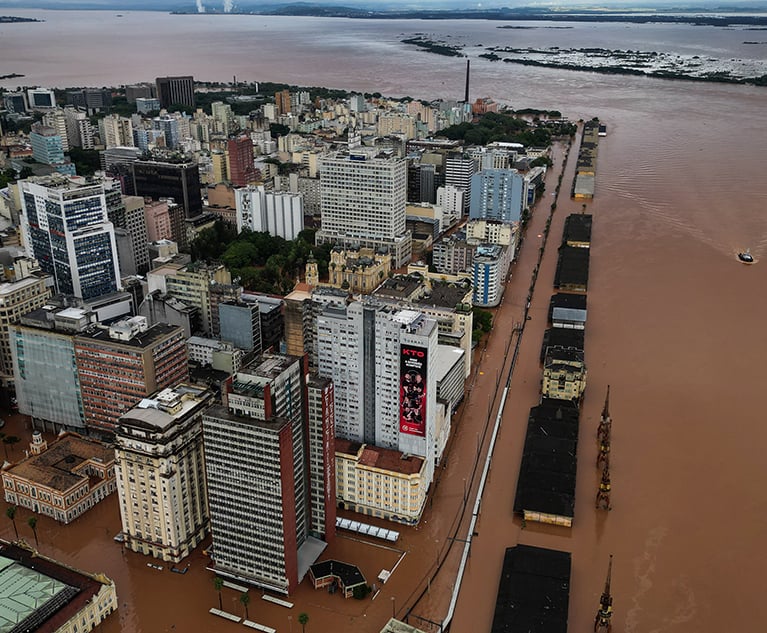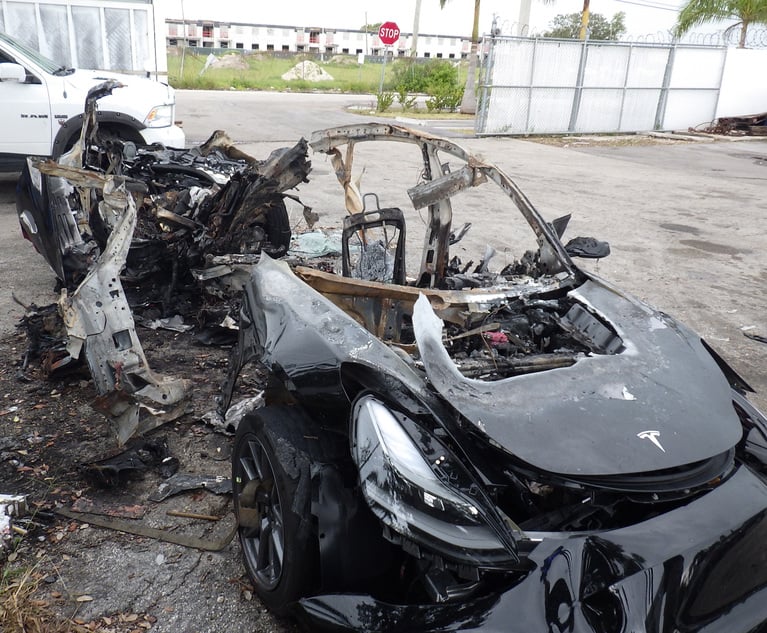Due to the expansion of hydraulic fracturing technologies, theUnited States is on the verge of surpassing Russia as the world'sleading producer of oil and gas. As hydraulic fracturing—commonlyknown as fracking—has risen into the national spotlight, its mediafootprint has expanded exponentially. A quick scan of today'sheadlines will show fracking associated with everything from airpollution to earthquakes. But if you judge fracking simply by whatthe media reports—as most people do—you'll have a skewed perceptionof the industry.
|This hype storm has scared away many companies, includinginsurers who perceive fracking will result in a high frequency offuture losses. However, given the magnitude of resources andopportunities that fracking unlocks, insurers would be wise toapproach fracking and the oil and gas drilling industry judiciouslyand strategically. By following this model, insurers can tap intothis major growth engine.
|The first step for insurers is to break through the wall ofmisinformation surrounding fracking. In the case of several of thehot topics around this practice, the conventional wisdom only hashalf the facts. For example:
- Considerable media attention has been paid to purportedgroundwater pollution, where fracking fluids or wastewater leaksinto aquifers. When done correctly, hydraulic fracturing occursthousands of feet below aquifers; by properly casing wells andextracting wastewater, groundwater supplies can be completelyprotected.
- Public concern has also been building around the chemicals usedin the fracking process. More than 99.5 percent of what goes intofracking wells is sand and water. Leading oil and gas drillingcompanies are required to disclose pollutants on the FracFocusnational chemical registry, enabling the public to learn more aboutthe chemicals in use on sites near their communities.
- Many assume the industry is poorly monitored and regulated.Instead, the opposite is true—leading states involved in oil andgas drilling, including Pennsylvania, Ohio, North Dakota and Texashave all instituted stringent regulations to ensure that drillingis safe for the general public. Along with the state regulations,associations such as the American Petroleum Institute (API) havecreated standards and guidelines that promote best practiceimplementation.
One of the most overlooked facts about fracking is that theprocess has been used in commercial applications since 1949. Overmore than six decades, the U.S. has led the way in developingtechnology to stabilize and streamline the fracking process.
|Yet, of the leading insurance companies, only a select few havebegun underwriting oil- and gas-drilling-related risks. This slowadoption has led to a shortage of capacity in the oil- andgas-drilling insurance market, strangling investors' appetites forrisk and artificially slowing the rate of growth.
|Why aren't more insurers offering coverage for fracking risks?There's a range of reasons, but what most insurers do notunderstand is that fracking is no different than other highlyspecialized, highly technical industries. Insurers have theopportunity to provide risk management and safety techniques thatwill help ensure the implementation of best practices andultimately control claims costs.
|As in any field, there will be bad actors, including a handfulof companies looking to cut costs and illegally boost profits thatwill likely cut corners and ignore best practices. At Energi, wehave seen and heard of everything from practices like changingDepartment of Transportation identification numbers to clean uptarnished records, to hiring unqualified workers for critical jobslike hauling chemicals and gas. Without insurance companies' activeparticipation, the burden falls on the market and state regulatorsto separate the good and bad actors—at the expense of the publicand the environment. Insurance providers are critical to ensuringthat the industry is implementing best practice standards set forthby state regulations and industry associations.
|The biggest issue holding back oil and gas drilling insurancecoverage options is a shortage of reinsurance capacity. Much ofthis is due to a lack of education among the reinsurance community,where much of the capital comes from European reinsurers. Sincefracking is a relatively new industry in the European Union, muchof these reinsurers' knowledge of the industry is formulated by thenegative perception coming from the U.S.; as a result, the marketis tainted. Without reinsurers, insurers who are interested inentering the market will be unable to properly mitigate theirrisk—preventing fracking from reaching its full potential.
|Through our work with oil and gas drilling, Energi has developedseveral best practices that will help insurers take a morestrategic approach to insuring this critical field.
- Hire and develop professionals familiar with oil- andgas-drilling risks. For any site, every aspect of the operation issubcontracted—insurers can write coverage for everything fromwastewater recycling to gas transportation. Insurers needspecialists who understand hydraulic fracturing and the risksinvolved to prevent losses. While oil and gas companies have hiredmany technical experts in the field, trainings are available todevelop your workforce and enhance their expertise.
- Deploy safety and loss prevention professionals to ensurepolicyholders and their employees follow best practices. Inaddition to monitoring policyholders for compliance, safety andloss prevention professionals can also educate policyholders on howto decrease their risks, and create a strong insurer-clientrelationship.
- Educate the reinsurance community on fracking and its risks.Recently, we held an Oil & Gas Drilling Symposium to educateour closest reinsurer partners on the fracking process, risks andregulations. Through this event, we were able to bust a few mythswhile starting a number of productive conversations aboutfracking's market potential.
Due to the nature of fracking, insurers must approach theindustry with a long-term, strategic mindset. This is not anindustry to be exploited and profiteered overnight, but rather thenext phase of American energy growth. Insurance will play a crucialrole in increasing investment in hydraulic fracturing whileprotecting public and private interests, benefitting the country asa whole. Together, we can help safely create an energy-independentAmerica.
|Brian McCarthy is the founder and CEO of Energi Inc. andEnergi Insurances Services Inc., a Peabody, Mass.-based industrialreinsurance company that provides specialized insurance and riskmanagement products to targeted market segments of the NorthAmerican energy industry. McCarthy founded Energi in 2005 alongsideinsurance professionals and energy industry leaders; Energi islicensed in all 50 states, Puerto Rico and Canada.He can be reachedat [email protected].
Justin Russo is a SVP of Safety and Loss Prevention forEnergi Inc. and Energi Insurances Services Inc. E-mail him at[email protected].
Want to continue reading?
Become a Free PropertyCasualty360 Digital Reader
Your access to unlimited PropertyCasualty360 content isn’t changing.
Once you are an ALM digital member, you’ll receive:
- All PropertyCasualty360.com news coverage, best practices, and in-depth analysis.
- Educational webcasts, resources from industry leaders, and informative newsletters.
- Other award-winning websites including BenefitsPRO.com and ThinkAdvisor.com.
Already have an account? Sign In
© 2024 ALM Global, LLC, All Rights Reserved. Request academic re-use from www.copyright.com. All other uses, submit a request to [email protected]. For more information visit Asset & Logo Licensing.








